Swiss marine scientist dives into paradise in the Seychelles
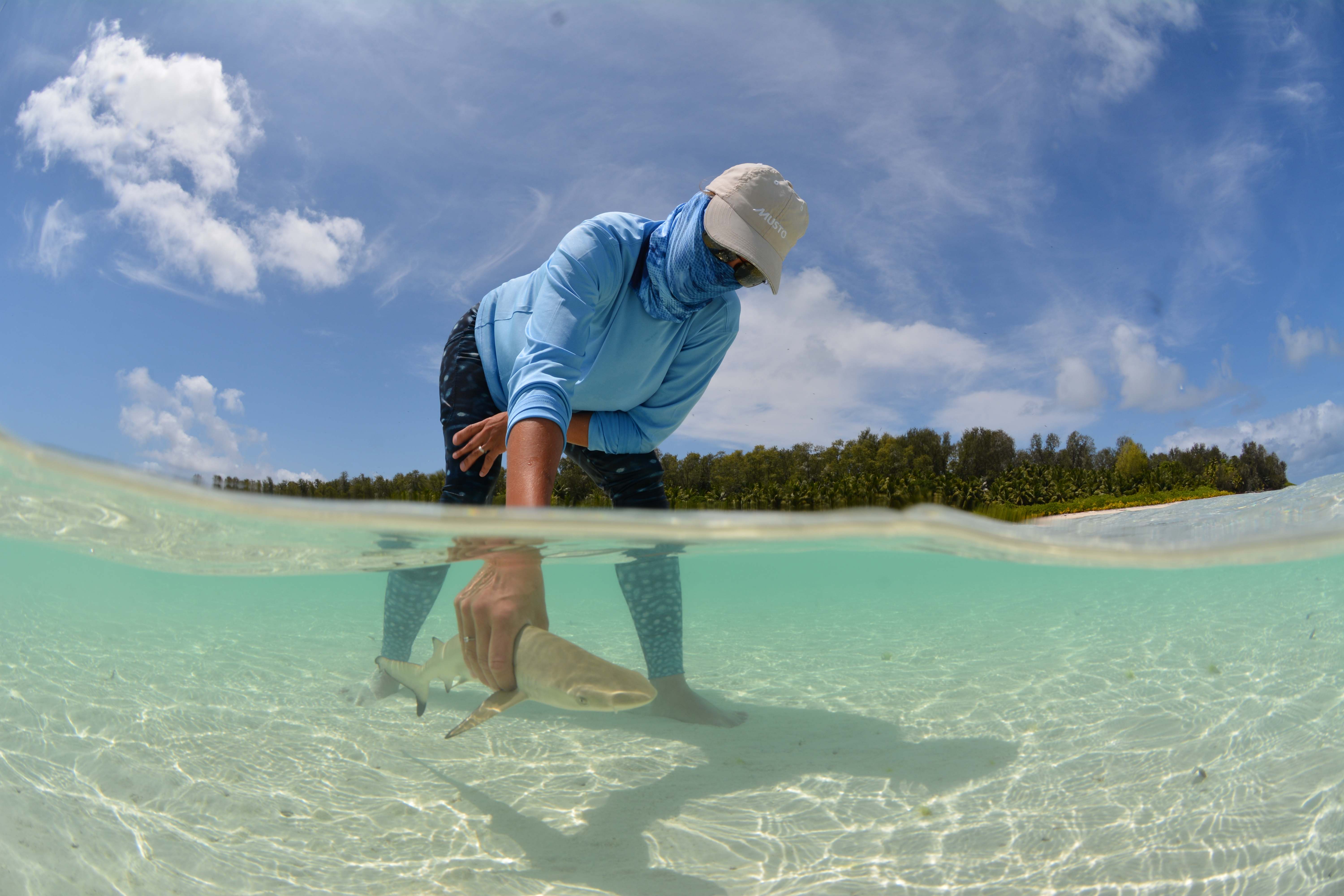
Swiss marine scientist Henriette Grimmel lives far from family and friends on a remote island in the Seychelles. She spends her days studying life in the ocean.
If you try to find where Grimmel lives on an online map, you first have to zoom over a lot of blue before finally homing in on the island of D’Arros. It is a small patch of land in the outer Seychelles archipelago, some 250 kilometres from the main island of Mahé. The place looks like a tourist paradise. However, nobody goes to D’Arros on holiday, and that is certainly not why Grimmel is there.
D’Arros is a private island that once belonged to the Shah of Iran and then to French cosmetics brand L’Oréal heiress Liliane Bettencourt, before being bought, in 2012, by Abdulmohsen Abdulmalik Al-Sheikh, the Saudi founder of the Save Our Seas Foundation. Grimmel is a marine scientist and runs the foundation’s research centre on the island together with her husband.
The Swiss Abroad are as diverse as the countries in which they live. SWI swissinfo.ch wants to showcase this diversity and is therefore publishing an exciting personal life story from a Swiss citizen living abroad every month.
Work begun from home during Covid-19
Grimmel, who grew up in Germany and Switzerland, was first drawn to marine science by a fascination with sharks and diving. The German-Swiss dual national holds two master’s degrees – one in marine biodiversity and conservation and the other in maritime spatial planning.
It was while writing her first master’s thesis in the Bahamas that Grimmel met her husband, a British marine biologist. After several years in a long-distance relationship, in 2019 they happened upon a job advertisement that was officially aimed at a couple: the D’Arros Research Centre in the Seychelles was seeking new managers.
The couple travelled to D’Arros in March 2020 for a first look around, but they had to start their new jobs from home, in Switzerland and England, because of the pandemic. They were finally able to relocate to the Seychelles in December 2020.
Turtles, sharks and manta rays
The aim of the researchers on D’Arros is to study the living creatures on and around the island and reef. They want to learn as much as possible about them and the interrelationships in the ocean, in order to help protect marine life and ecosystems.
Each morning, a member of the team walks around the island on the beach – which takes 60 to 90 minutes – to check the sand for traces of turtles that have laid their eggs.

The team also pays special attention to sharks and to manta rays, which Grimmel likes in particular. “I always think sharks are cool, but mantas have more character,” she says. “Compared with other fish, reef mantas have the biggest brains in relation to their bodies, and this shows in their behaviour.”
Older female mantas can grow to be three to four metres long. When she dives under them, Grimmel can identify the rays by the black spots on their white bellies. Some of them are shy, some are curious, while others hardly notice her and nearly swim into her.
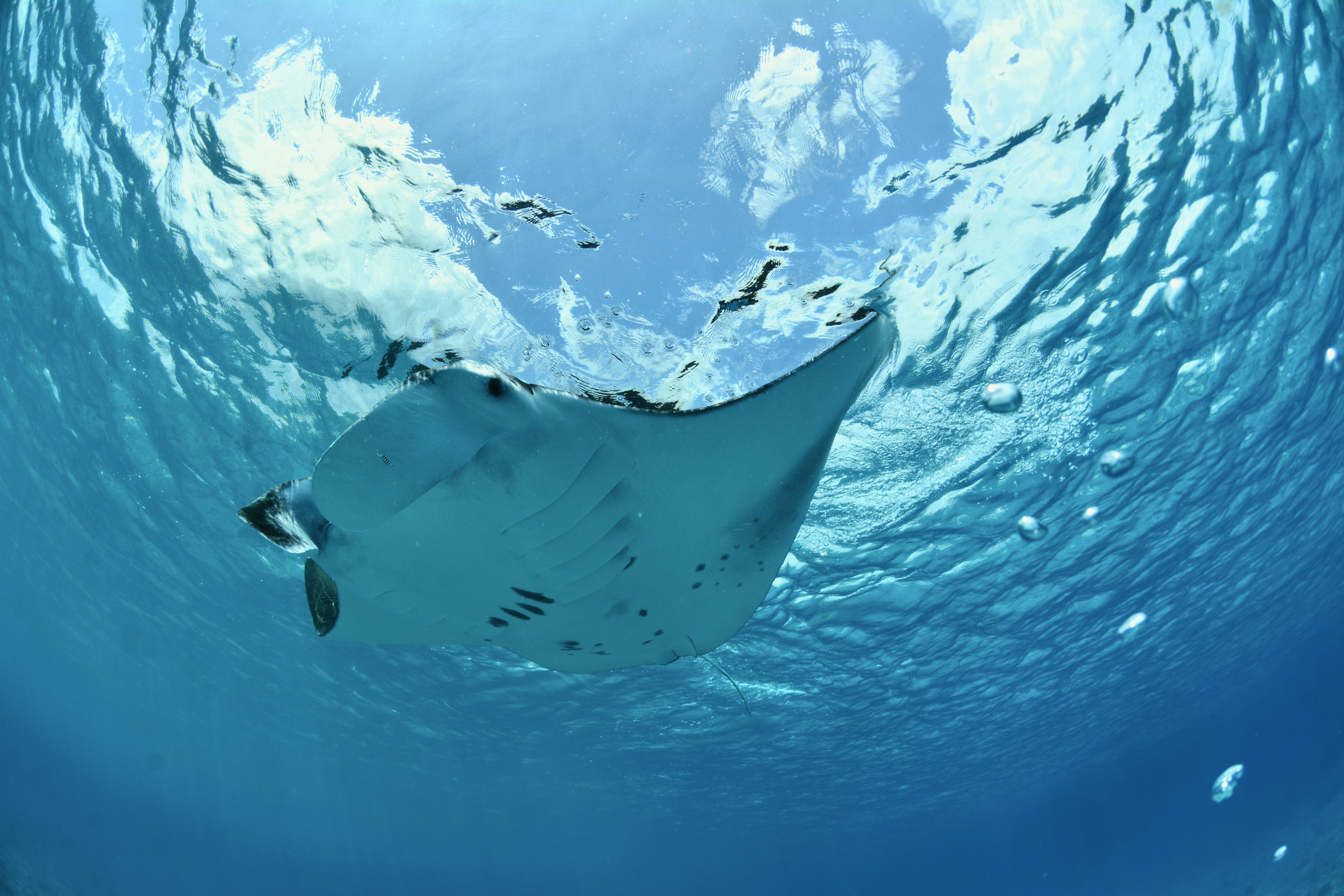
Living in isolation
It is “hard to explain” what living on D’Arros is like, Grimmel says. She and her husband count themselves very lucky to be based there. They can get on with their work undisturbed. There are also two women from the Seychelles on the team. In total, around 30 to 50 people live permanently on the island. Those who are not part of the research centre team take care of the upkeep of the facilities.
D’Arros is basically a haven of unspoilt nature, Grimmel says: “There is no café or bar. There is nothing to do after work except a bit of sport or a game of cards.” This lack of variety and social outlet can be a challenge, especially as they are also cut off from family and friends, despite regular digital contact.
The island does at least have a small shop where they can buy groceries. The researchers do not have to prepare their own meals, however, as the centre has a cook. This is convenient, as they can then focus on their work – which easily fills up to 60 hours a week spread over five and a half days, depending on the season. But it also means they have little say over what they eat, which Grimmel found tough to start with. “But I make my own sourdough bread,” she says. Next year, she wants to start producing her own yoghurt.

There are certain tasks that the scientists can only perform in perfect conditions, for instance when the ocean is smooth as glass and the water clear to a depth of up to 40 metres.
There are two monsoon seasons a year on D’Arros. During this time, the sea is usually too rough to work outside. So this is when Grimmel and her husband can visit family and friends in Europe. They can therefore fly home for Christmas, when the north-west monsoon comes.
Lab run with Swiss precision
While her husband is a “classic marine biologist”, devoting his time mainly to research, Grimmel describes herself as a generalist. As well as doing field work, she is responsible for the management and administration of the centre. So when it comes to organising and structuring the lab, she can give full rein to her German and Swiss thoroughness. Everything has its place. “I’m strict about that. And woe betide anyone who traipses sand into the lab,” she says with a laugh.
Is there still hope for the oceans? Grimmel gives the matter some thought. “Yes. Although there are a lot of problems for the oceans and ecosystems, of course.” But when she sees how many people are putting their energy into protecting marine life, she feels optimistic. One of the foundation’s objectives is also to train people from the Seychelles, “so that we are no longer needed”, she says. The research centre regularly offers internships, as well as a competition for young people, the winners of which get to spend a week on D’Arros. “Several of them are now studying in this field,” Grimmel says.
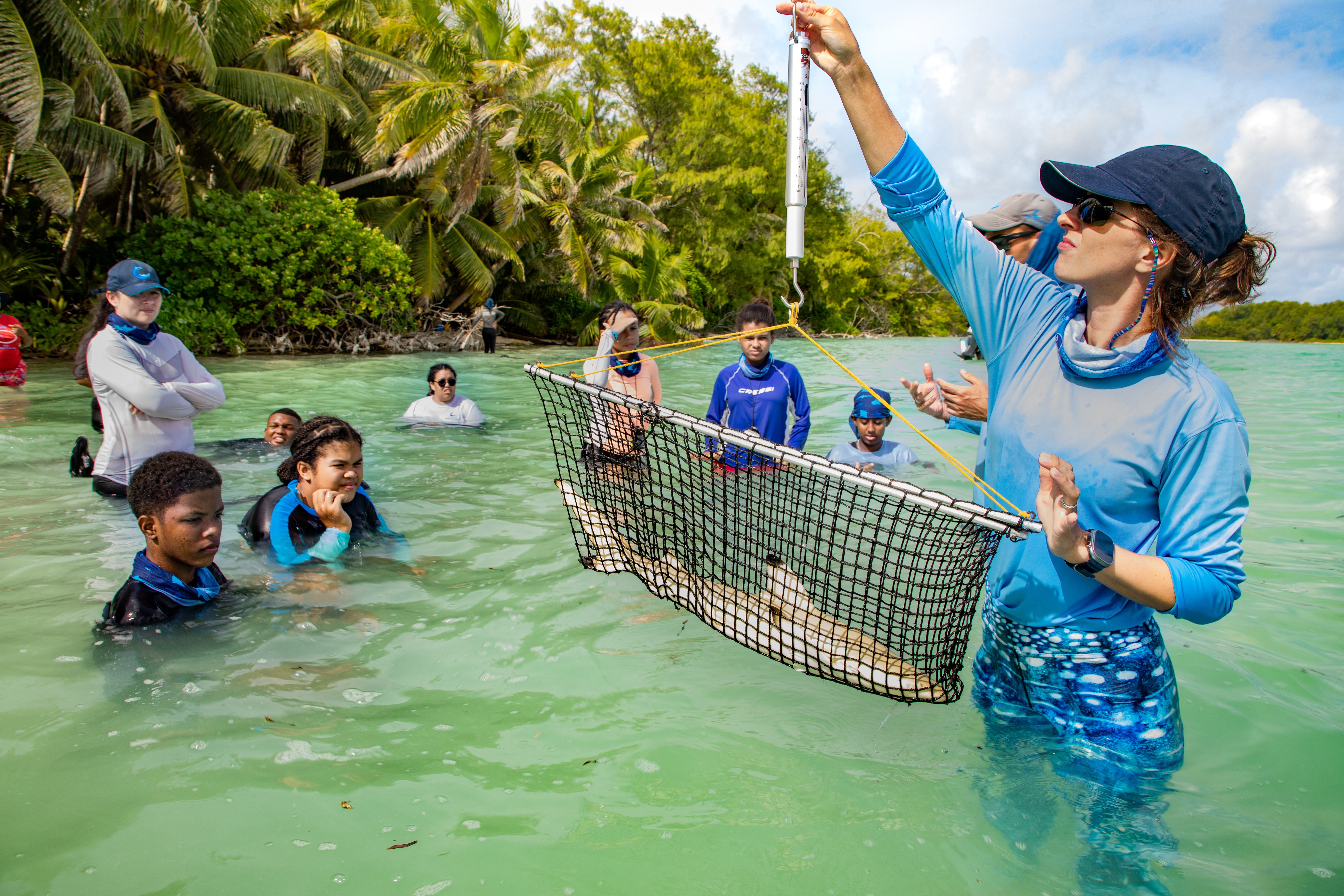
And what will Grimmel and her husband do next, once they have done themselves out of a job on the island? They have a longer-term goal. “We want to live in Scotland later on,” she says with a smile.
Edited by Marc Leutenegger. Adapted from German by Julia Bassam/ds

In compliance with the JTI standards
More: SWI swissinfo.ch certified by the Journalism Trust Initiative

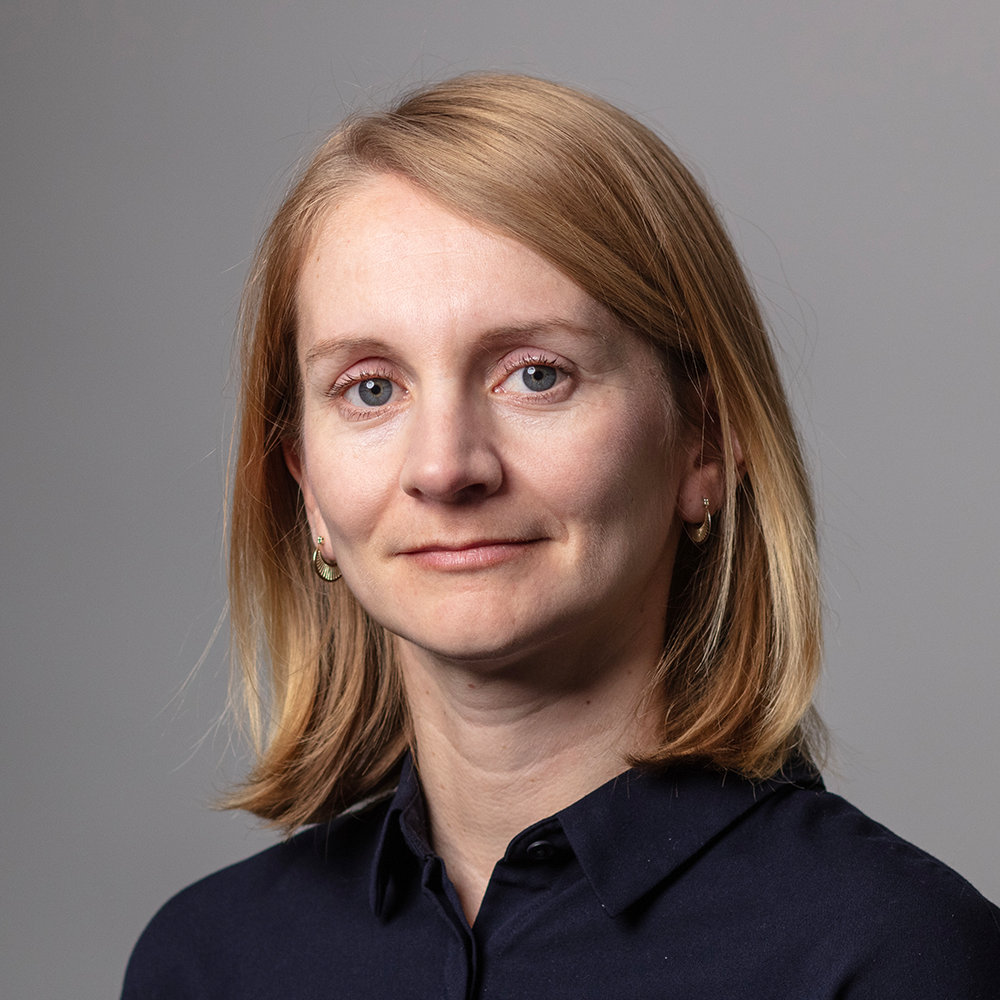









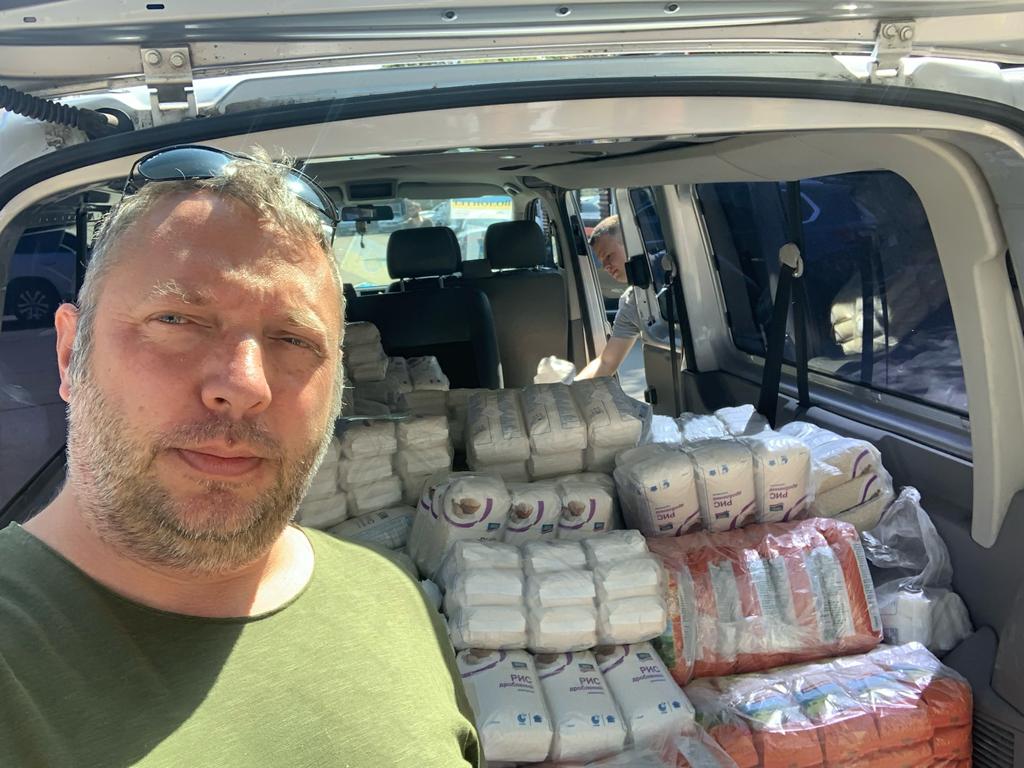


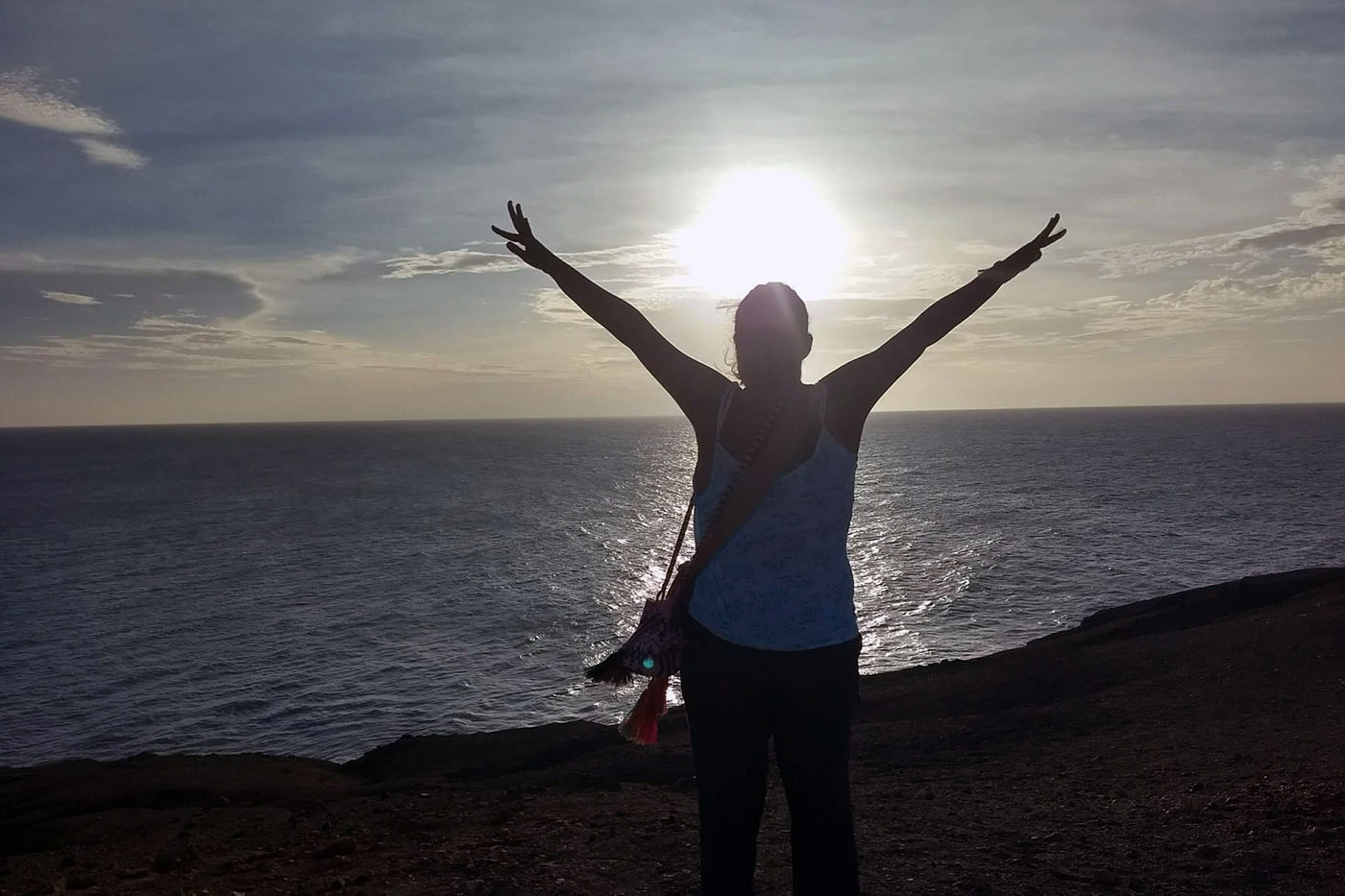
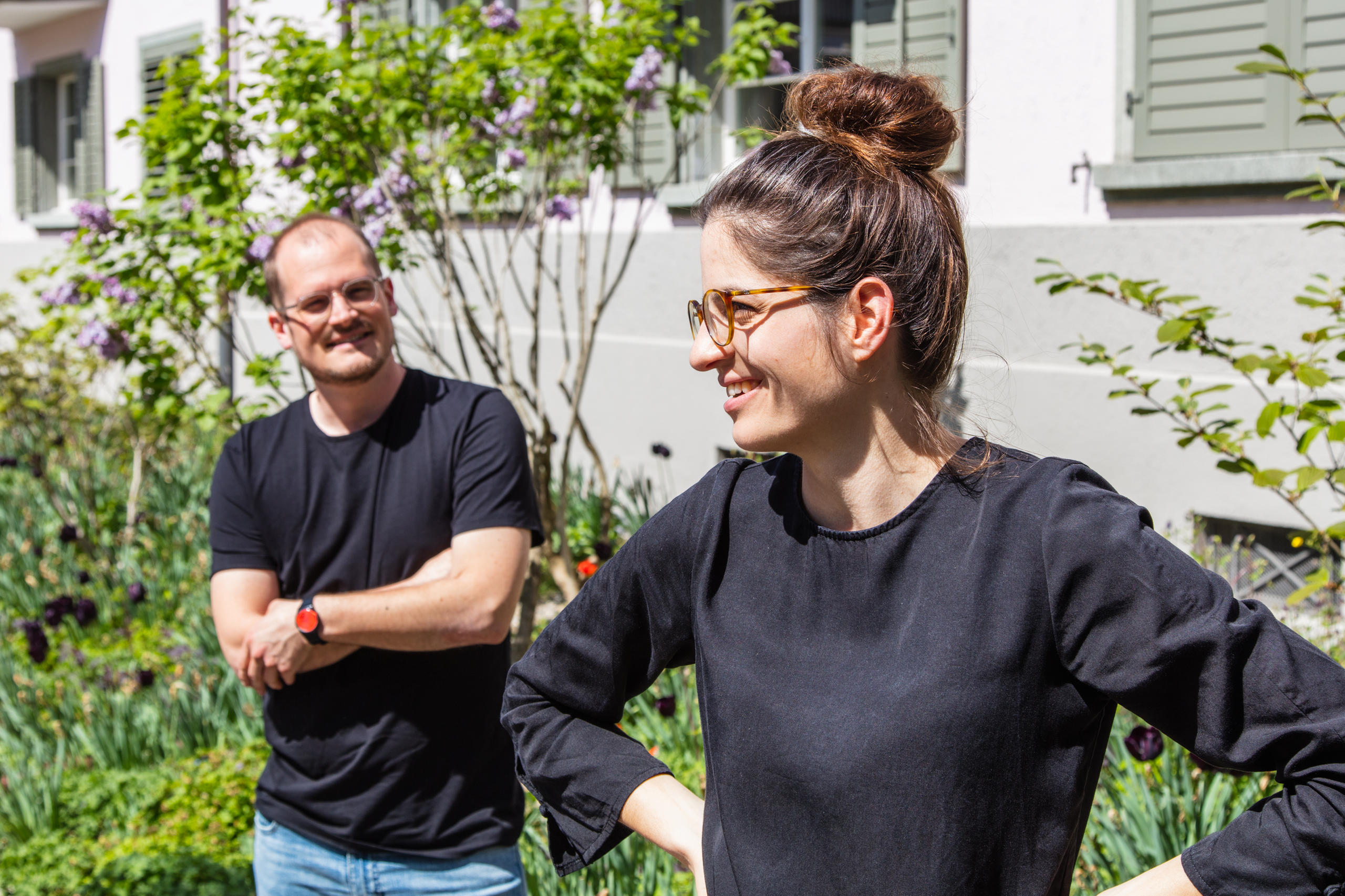

You can find an overview of ongoing debates with our journalists here . Please join us!
If you want to start a conversation about a topic raised in this article or want to report factual errors, email us at english@swissinfo.ch.